Same as anything else in life especially that with a chance for acceptance or rejection we always want to do our best when it comes to the application phase of the process. Applying for and pursuing an MBA degree you so desire is no different, if anything the stakes are even higher making it more important for a result.
There are other equally important parts of the MBA admission process such as your test scores, more specifically scores such as your GMAT score, the admission interview, how you perform in front of the MBA admissions committee & work experience among other elements & factors. Understanding this we decided to write an article about the best MBA application practices out there that are sure to keep your application out of the rejection pile.
1) Elements of an MBA Application
Before jumping on to the tips on how you can make an outstanding MBA application that lets your MBA profile pop out and stand out from the rest we first need to understand the different elements of an MBA application, which are as follows
- Academic Transcript
- Test Scores
- Resume
- Application Forms
- Essay Questions
- Recommendation Letters
- Admission Interview
Now let us move on to discussing the best practices regarding each section, putting your MBA application in the lead for many MBA admission consultants in some of the top MBA programs out there such as Harvard Business school
Academic Transcript
Our first advice when it comes to your Academic transcripts is to make a copy of them for personal use and go over them making sure the grades are correct and that the GPA matches the one you remember and that is required by the top schools of business out there and before it’s viewed or submitted to an admission officer.
Another advantage of digging deeper into your academic transcripts is that it might reveal ways by which you can differentiate yourself from the sea of Masters in Business administration applicants out there, such as being bilingual or at a master proficiency regarding a foreign language.
Last but not least there’s always a possibility of some academic shortcomings in an optional essay or any other academic red flags that you would rather know beforehand than be surprised with after submitting your application. These shortcomings can be covered however either via extracurricular studies while assuming responsibilities and not making excuses and focus on compensating that in your GMAT.
Test Scores
Traditionally speaking the main admission examination that you needed to take was the GMAT and until recently it was the only acceptable standard, however, recently many institutions have been accepting the GRE as the standard, an alternative which some students find themselves scoring higher on.
Another language-focused examination you need to take would be the TOEFL if your English is neither your native language nor your college was not in an English only university and irrespective of how fluent your English might be. We recommend that you get your GMAT done at least 6 months before your admission time.
As for a commonly asked question which is how high should my grades be, well we recommend following the “three 80s Rule”, rule says to.
- place yourself to score well above the low end of scores of 80% of the schools accepted applicants
- Secondly, you want the scores for the Quant & verbal sections to have a score of above 80%
- Thirdly, you will need a cumulative score of above 860
Application Resume
First things first, an MBA application resume is completely different from an employment resume in both purpose & audience or targeted individuals. One of the examples of the aforementioned difference is that your future employer will be interested in knowing about your technical skills, while your MBA admissions officer would be more interested in your academic and distinguishing career moments
In your application resume, you’re selling yourself to the admission officer which means that you should explore and display the features that these schools are looking for such as leadership, teamwork, creativity & initiative among others.
Another important aspect that is usually the demise of most application forms is the lack or absence of quantified results. To clarify the difference, there’s a difference between saying that lead a search campaign and saying the same sentence but adding that you achieved a 50% revenue
Check out our different MBA programs at https://eccceg.com/mba/
Application Forms
Another common mistake is that applicants don’t pay enough attention or dedicate enough time to their application forms and other servicing documents such as data sheets among others, despite the importance of the previously mentioned application form.
Our advice is that you have a look into the application forms from previous years of your shortlisted schools and checking out the different experiences, honors, and awards among the accepted applicants, and working towards having no blank spaces in these crucial spots.
To execute this successfully you will need to prepare in advance for weeks before the designated deadline to avoid a rude and unsavory awakening, some programs might ask questions such as what the most challenge you faced in your previous jobs & your extracurricular activities and spell checking your application is crucial and essential to your application process.
Essay Questions
All the previous elements we mentioned are all to prove that you are eligible and qualify to join the program, the essay question however is what proves that you will fit. These questions are somewhat standard and stay fixed from year to year with questions like “what are your career goals”, accomplishments, essays, and other fixtures of MBA essay questions so try to stand out and be unique in a positive way
Recommendation Letters
When it comes to recommendation letters perfecting your process and choice of the person who will ouch for you are instrumental to your acceptance. Many candidates mistakenly choose the individuals with the biggest names and loftiest titles, believing this will add credibility to their recommendation while in reality getting such a letter from someone who doesn’t know you or your journey might do more harm than good.
Another thing about this phase is that students need to be proactive about the process and send the recommendation forms to the individuals of their choice a couple of weeks before the submission date. Last but not least although your admission officer might ask you to write your recommendation letters which might not be a great idea as it could be used in evaluating your writing skills
Admission Interview
Last but not least comes the final and somewhat distant step to those who are still at the start of the admission process, it is worth noticing however that some schools have a preemptive approach to applying to the program & conclude interviews in advance, somewhere around a few weeks before the admission deadline
Another option that many schools go for would be on-campus interviews, which might not be a bad idea as it allows you to get a sneak peek of the campus and it also shows how committed you are to joining the school & your high sense of commitment which will help improve your chances. Finally, these interviews are mainly held to see if you will fit in with the school’s ecosystem, so display stories and highlight other factors that show you will fit right in
Those were some of our main tips when it comes to the admission process and how to keep your application away from the cold clutches of the rejected pile. We wish you the best in your MBA journey.


